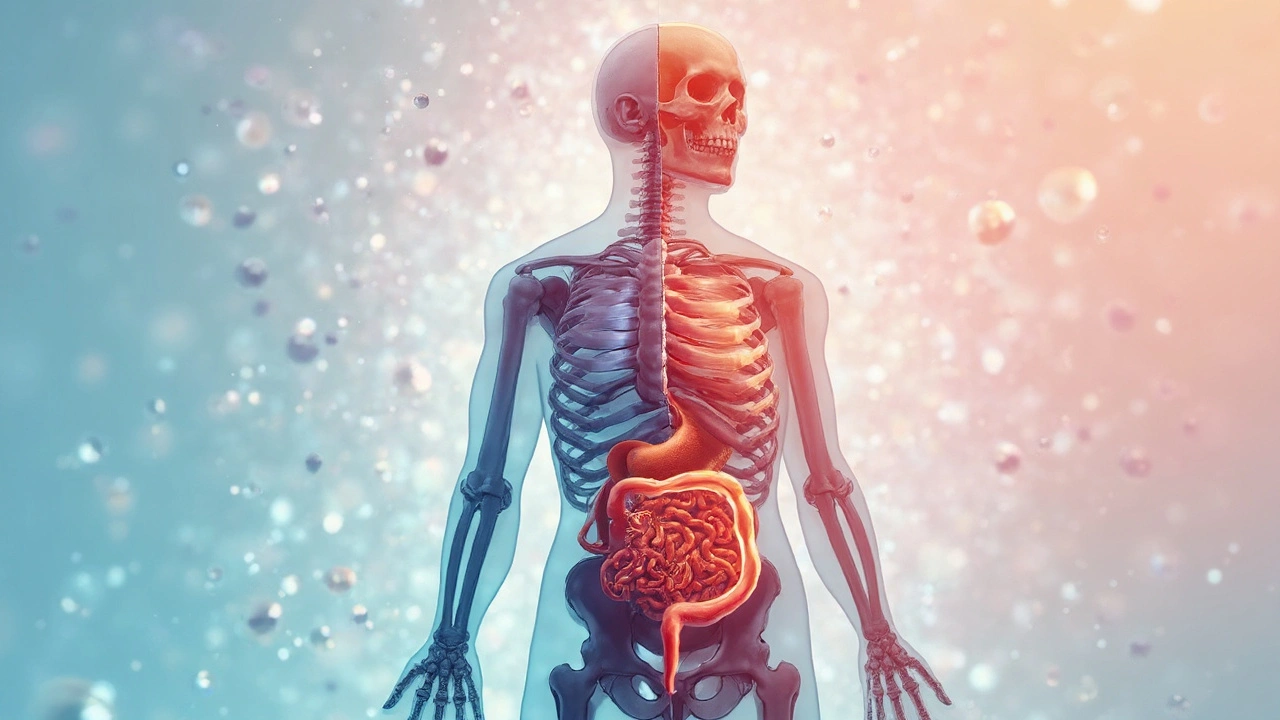Gastrointestinal Disorders: What You Need to Know
If your stomach’s acting up, you’re not alone. Millions deal with bloating, cramps, or weird bowel movements every day. Most of the time it’s a mild issue you can handle at home, but sometimes it signals something more serious. This guide breaks down the most common GI disorders, tells you how to spot the red flags, and gives practical steps to feel better faster.
Common GI Conditions
Here are the gut problems you’ll hear about most often:
- Irritable Bowel Syndrome (IBS) – Cramping, gas, and alternating constipation/diarrhea. Stress and certain foods can trigger flare‑ups.
- Gastroesophageal Reflux Disease (GERD) – Burning chest pain after meals, sour taste, or throat irritation. Often worse when you lie down.
- Peptic Ulcers – Open sores in the stomach or duodenum that cause gnawing pain, especially on an empty stomach.
- Inflammatory Bowel Disease (IBD) – Includes Crohn’s disease and ulcerative colitis; leads to persistent diarrhea, weight loss, and fatigue.
- Food Intolerances – Lactose, gluten, or FODMAPs (e.g., certain fruits, beans, wheat) can cause bloating and gas.
Knowing which symptoms match each condition helps you decide if a simple diet tweak is enough or if you need a doctor’s check‑up.
Managing Your Gut Everyday
Even before you get a diagnosis, a few daily habits can calm many GI complaints:
- Eat mindfully – Chew slowly, avoid giant meals, and try to keep a food journal. You’ll spot trigger foods faster.
- Stay hydrated – Water helps move food through the digestive tract and prevents constipation.
- Choose low‑FODMAP options – Arrowroot powder, for example, works as a gluten‑free thickener without the gas‑inducing carbs in wheat.
- Limit caffeine and alcohol – Both can irritate the lining of your stomach and worsen reflux.
- Move your body – A short walk after eating boosts motility and reduces bloating.
If symptoms linger more than a few weeks, or you notice blood in stool, severe weight loss, or persistent vomiting, book an appointment. Early treatment can prevent complications, especially for IBD or ulcers.
Remember, gut health isn’t just about avoiding pain—it affects mood, energy, and immunity. By listening to your body, making simple diet changes, and getting professional help when needed, you can keep your digestive system running smoothly.

